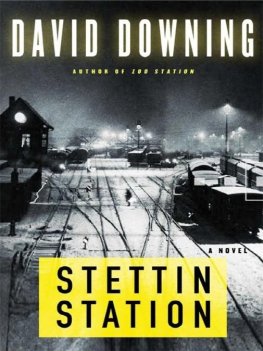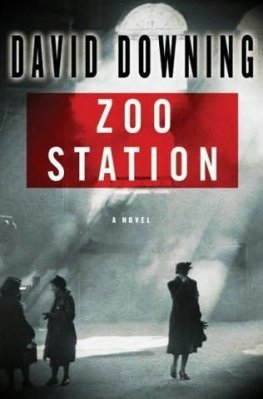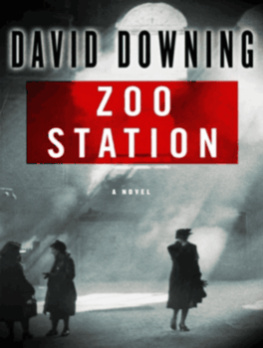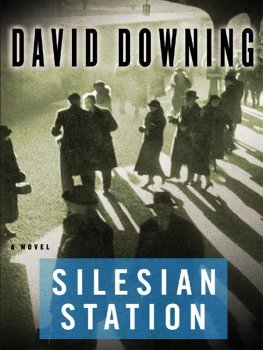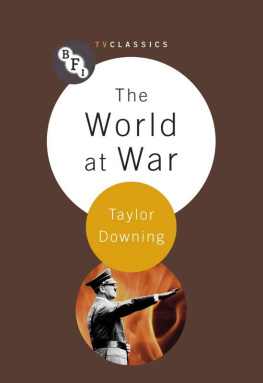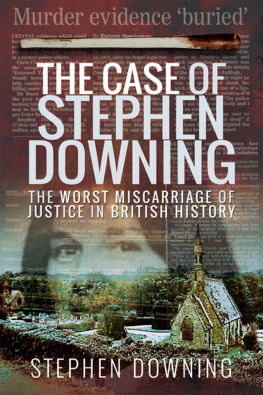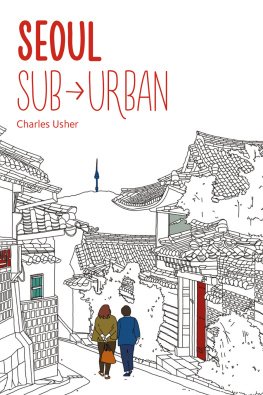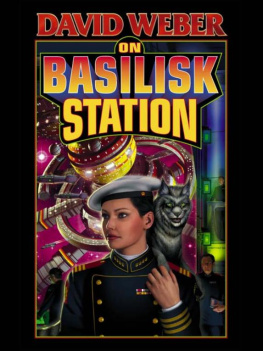David Downing - Potsdam Station
Here you can read online David Downing - Potsdam Station full text of the book (entire story) in english for free. Download pdf and epub, get meaning, cover and reviews about this ebook. genre: Detective and thriller. Description of the work, (preface) as well as reviews are available. Best literature library LitArk.com created for fans of good reading and offers a wide selection of genres:
Romance novel
Science fiction
Adventure
Detective
Science
History
Home and family
Prose
Art
Politics
Computer
Non-fiction
Religion
Business
Children
Humor
Choose a favorite category and find really read worthwhile books. Enjoy immersion in the world of imagination, feel the emotions of the characters or learn something new for yourself, make an fascinating discovery.

- Book:Potsdam Station
- Author:
- Genre:
- Rating:5 / 5
- Favourites:Add to favourites
- Your mark:
- 100
- 1
- 2
- 3
- 4
- 5
Potsdam Station: summary, description and annotation
We offer to read an annotation, description, summary or preface (depends on what the author of the book "Potsdam Station" wrote himself). If you haven't found the necessary information about the book — write in the comments, we will try to find it.
Potsdam Station — read online for free the complete book (whole text) full work
Below is the text of the book, divided by pages. System saving the place of the last page read, allows you to conveniently read the book "Potsdam Station" online for free, without having to search again every time where you left off. Put a bookmark, and you can go to the page where you finished reading at any time.
Font size:
Interval:
Bookmark:
David Downing
Potsdam Station
Franco's furniture April 6 7
As they walked south towards Diedersdorf and the battalion command post, Paul Gehrts realised that he and his companion Gerhart Reheusser were grinning like idiots. The cloudless blue sky, warm sunshine and dust-free easterly breeze were responsible, banishing, if only for a few minutes, the grim anxiety that filled their waking hours. For the moment the occasional rattle of a distant machine-gun, the odd boom of a tank cannon or gun, could be ignored.
About five kilometres behind them, the Seelow Heights fell sharply away to the Oderbruch, the meadowlands which lay between the escarpment and the Oder River. Soon in a few days, most likely the men and tanks of the Red Army would storm across those meadows and throw themselves at the German defences. The Russians would die in their thousands, but thousands more would follow. It would only be a matter of time.
But a sunny day was a sunny day, with a power all its own.
The two men were approaching the first houses of the small town when they came upon a large group of soldiers spread out along the side of the road. Few looked older than fifteen, and one boy was actually passing round his army-issue bag of sweets, as if he were at a friend's birthday party. Most had their panzerfausts lying beside them on the grass, and all looked exhausted the disposable rocket-launchers were a crippling weight for all but the strongest children. Their troop leader, who was probably almost out of his teens, was examining a weeping blister on one of his charges' feet. As Paul and Gerhard walked past he looked up, and offered them a brief rueful smile.
Almost all of Diedersdorf's usual residents had left or been evacuated, and were now presumably clogging the roads leading westward, but the town was not being neglected in the small central square an overzealous staff-sergeant was supervising another band of young recruits in sweeping the cobbles.
'The madness of the military mind,' Gerhard muttered, not for the first time.
As if prove his point, a half-track drove across the square, sending eddies of dust in every direction. The sergeant endured a violent fit of coughing, then ordered his boys back to work.
The division mechanics had set up shop in the goods yard of the town station, close to where a large dug-out had been excavated in the railway embankment for the battalion command post. The corporal at the improvised desk in the goods shed groaned when he saw Paul's machine-gun. 'Don't tell me it jams.'
'It does.'
'How often?'
'Too often for comfort.'
The corporal sighed. 'I'll get someone to have a look,' he said. 'Come back in an hour.'
Two bench seats from the nearby railway station had been left outside the battalion command post entrance, offering a place to wait and watch the war go by. The two of them had only been sitting there a few minutes when a captured Red Army jeep pulled up. A Wehrmacht major and two NCOs leapt out, shoved their manacled Russian prisoner onto the other seat, and disappeared into the dugout. He looked like an ordinary rifleman, with dark dishevelled hair and vaguely Mongoloid features. He was wearing a blood-stained kaftan above badly frayed trousers and worse-worn boots. He sat there with his mouth slightly open, his eyes gazing blankly into space.
But he wasn't stupid. Catching Paul's look he returned it, and his eyes, once focused, seemed full of intelligence. 'Cigarette?' he asked.
That, at least, was one thing the Reich wasn't short of. Gerhart got up and gave him one, placing it between the Russian's lips and offering a lighted match.
' Spasibo. '
'You're welcome, Ivan.'
'No, he fucking isn't,' another voice exploded behind them. It was one of the NCOs who had brought him in. He knocked the cigarette from the Russian's mouth, throwing sparks all over his face, and swung round on Gerhart. 'What the fuck do you think you're doing?'
'What I hope'
'Shut the fuck up. And get out of my sight.' He turned away, grabbed the Russian under one arm and hustled him through the curtained door of the dug-out.
'Wonderful,' was all Gerhart said. He looked at the still-swaying curtain, as if contemplating pursuit.
'Let's try and find some hot water,' Paul suggested.
'I'm not going anywhere,' Gerhart told him. 'I'm not going to let a shit like that order me around.'
Paul shrugged and sat down again. There was no use arguing with Gerhart at times like this.
They'd been sitting in silence for about a quarter of an hour when shouting started inside. This went on for several more minutes, and culminated in a gunshot. A few moments later, there was another.
Gerhart leapt to his feet.
'Let's go and find that hot water,' Paul said quietly.
Gerhart spun round, anger in his eyes, but something in his friend's expression did the trick. He closed his eyes, breathed out heavily, and offered Paul a rueful smile. 'Okay' he said. 'If we both take a bath, the war might stink a little less. Let's go and find one.'
But they were out of luck. The only hot water in town came complete with a queue, and was already brown. A drink proved easier to come by, but the quality was equally dire, and after scorching their throats with a single glass neither felt hungry for more. They went back to the workshop, but the mechanic still hadn't got round to checking the machine-gun. Rather than return to their seat outside the command post, they pulled a couple of armchairs out of the empty house next door, and settled down to wait. Paul thought about checking the location of the nearest basement, but found he couldn't be bothered. The sun was still shining, and it looked like the Red Air Force was having an afternoon off. If worse came to worst, they could simply throw themselves into the dugout across the yard.
Gerhart was devouring a cigarette, angrily sucking in smoke and flicking off ash while he wrestled with his inner demons. He was still pissed off about the Russian prisoner, Paul realised. Which might be admirable, but was unlikely to serve any useful purpose.
Paul had known him a long time. They'd been best friends at their first school, but Gerhart's father had moved his family to Hamburg when both were nine, and they'd only met up again two years ago, when both were drafted into the same flakhelfer unit at the Zoo Bunker Gun Tower. Gerhart had persuaded Paul that pre-enlistment in the Wehrmacht made sense, partly because he wanted out of the flakhelfer, partly to avoid SS recruitment. Paul had resisted for one reason the girl he had just fallen in love with was one of those directing the neighbouring tower's searchlights. But after Madeleine's mounting took a direct hit he could hardly wait to get away. He and Gerhart had started their compulsory labour service together, and then been called up as seventeen-year-olds when the age limit was lowered early in 1944. They were still gunners, but now they were soldiers of the 20th Panzergrenadier Division.
They had been with their Pak-43 88mm gun for almost a year, somehow surviving the collapse of Army Group Centre the previous summer and the winter battles in Poland. When they had left Berlin for their first Ostfront posting, Gerhart's mother had taken Paul aside and asked him to look after her son, but if anything he had looked after Paul. Gerhart's relentless negativity when it came to the war, the army and the Fuhrer was sometimes irritating, but he never let it lessen his sense of duty toward his comrades. In fact, the one probably reinforced the other.
These days, Gerhart was the closest thing Paul had to family. His father John Russell had deserted him in 1941; his mother Ilse and stepfather Matthias Gehrts had died in a car crash the previous year. His stepsisters were alive as far as he knew, but Paul hadn't seen them since their evacuation two years ago, and the relationship had never been really close. He hadn't spoken to his mother's brother Thomas since their argument about his father almost three years ago.
Font size:
Interval:
Bookmark:
Similar books «Potsdam Station»
Look at similar books to Potsdam Station. We have selected literature similar in name and meaning in the hope of providing readers with more options to find new, interesting, not yet read works.
Discussion, reviews of the book Potsdam Station and just readers' own opinions. Leave your comments, write what you think about the work, its meaning or the main characters. Specify what exactly you liked and what you didn't like, and why you think so.

